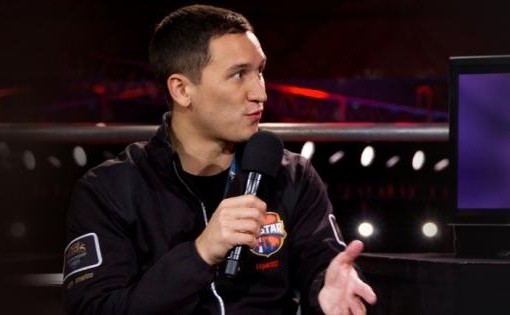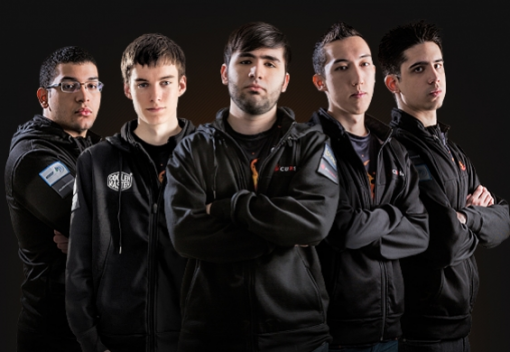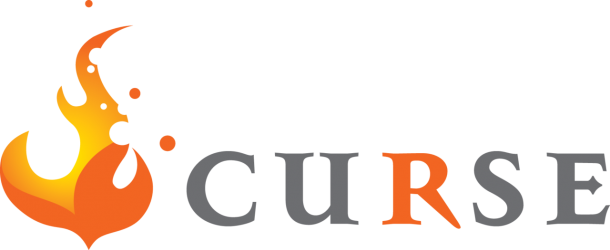Curse esports activity goes independent including teams, ownership
In a deal signed between Curse management and team owner Steve 'LiQuiD112' Arhancet on March 1st, onGamers has learned that all current esports activities under Curse will be spun off into its own independent organization. The League of Legends, Call of Duty, and Smash Bros tMelee teams and players, along with sales, content, talent, and admin departments are included in the transfer.
Ownership of the new organization, which is dubbed 'Competitive Esports', will be taken by Arhancet, who has been managing esports activities for Curse since its inception. Curse VP of Marketing Donovan Duncan says that Curse will continue to be the title sponsor for the new organization, and all teams will remain under the Curse name.
Arhancet and Duncan both speak to onGamers about why and how this transfer came about, the finances behind the deal, and what the future has in store for both organizations.
onGamers: Why have you each decided to go on this path?
Steve 'LiQuiD112' Arhancet: I think one of the main reasons for doing this is just to become a little bit more agile than we have been able to do previously, As you know, the esports market is ever changing with new games as they become competitive, and the players, teams are constantly changing. That creates a lot of decisions that need to be made really quickly and I need to be able to seize those opportunities as they come up. So being able to have the control and the quick decision making power to do things that are necessary to help extend the Curse brand and the areas within esports that we wanna be involved in, is definitely one of the main reasons why we did this. Or I did this.
Donovon Duncan (Curse): Yeah, and I’m totally agreeing. One of the examples you can use Rod is even when we make simple changes to rosters, for Curse as a company and the way that we operate, we’ve had to employ these guys, we’ve had to get insurance, we’ve had to put them on payroll. To move someone or to change their compensation in any way or let them go from the team is actually really hard to do when they’re full time employees. And as a company we’ve had to face challenges that have made it harder for us to react quickly - which is absolutely needed in a sports environment. So, it just wasn’t necessarily a scenario in which we were able to get things done quickly and allow Steve to operate in a way that, let him move people around quickly and have them kinda in a sports like environment. As a company we were not used to having to let somebody sit out for a week, for example, and so it’s more a change in just nature, we’re more agile and then we can have the best team out there and make sure that everything’s just as smooth as possible.
What is the structure of the new organization?
Arhancet: Day one, I have 60 contractors that are working for the company, so I have 60 contractors that will be moving over, so. No. No. They’re all contractors to me. Yes. I am the CEO and I also do have a cofounder I guess, who owns a minority stake in the company, Chris Blevins, nope, just the two of us. No, nothing like that. We have more gaming houses coming. Hopefully an office at some point. I’ve tossed around the idea of rather than having gaming houses, of having an office with an apartment complex nearby where the gamers can live and come to the office and work and then go back home, I would honestly prefer to move to a model like that, so at some point maybe, but yeah we have another gaming house what’s gonna pop up here within the next month.
Did money exchange hands for this transfer of company assets?
Duncan: Yeah, I don’t wanna talk too much about numbers, but the takeaway is just that we, in my opinion, have really set Steve up on kinda the road to success, because again this was not a thing where we wanted to get rid of Steve or get rid of esports or anything like that - I think we’ve been very, very compelled to see the program still be successful, we’re still the title sponsor, we’re still paying every month to have Steve be able to run this successfully, open new teams, manage the best League of Legends team - so there was a lot of things that we’ve done to make sure that this will be successful in the future.
Arhancet: I set up the company, knowing that, this is not the kind of company where I’m on the corner and people are going to be coming into the door because of the name, or building a company that, the name of the company is needed to sell services or products - I’m of the belief that I will always have a title sponsor associated with the team, and that title sponsor will retain all of the naming rights associated with everything. And that’s the way that we’ve structured it. So the official company name is “Competitive Esports” but that name will not be used. Curse has granted licensing rights to “Competitive Esports” to continue using the Curse name in pretty much everything we do, so the community and the fans and all that will not see any kind of name change or anything like that. It will all continue to be Curse. “Competitive Esports”, it’s all kind of generic as you can get.

Why did you name the new company 'Competitive Esports'?
Arhancet: The thing is that it’s kind of a throwaway, right? The name of the company doesn’t really matter too much, because in what use does the company name provide value? It’s going to be on our invoices. The extent that the name will be used, it will not be used anywhere else. Everything else will still be named as Curse to everyone involved. It will be Curse Esports, Team Curse, Curse Gaming, all of that will continue as is. We usually go by Team Curse.
How is Curse organized at a company structure, and how did this make it difficult to make moves for the esports enviornment?
Duncan: Yeah, I mean we’re a media company and some of that is traditional, we do some things here that I think are pretty unique - we spend a lot of time on development, we’re building products and services. Esports from the beginning was really something we were incredibly passionate about and wanted to make sure that it fit quite well within the company and it did. Most of the executive team plays League of Legends, most of us are very involved in watching the games and knowing the players, and that part was super cool. But again, kinda back to the last thing I was saying, is as far as structure we’re set up as a company. This unfortunately isn’t easy to operate when you’ve got things like employee insurance and healthcare and things that we have to do, because we operate a large business. So, it was kind of a combination of us wanting the programmers until 2016, but then realizing that we couldn’t operate at the way that we operate Curse, because the way that we run things here is very much like a business, it’s very much a place where we have employees, and 401(k) programs, and things that just don’t necessarily fit into the environment of a sports team.
Arhancet: Yeah, absolutely, I mean in the realm of sports, there are instances where you need to be able to make changes pretty quickly based on performance, and just things that are going on within the community. So, if for example - if someone’s underperforming and you’ve brought them on and they’re an employee, and you’ve done all the kinda indoctrination to get them setup and on payroll and taken care of all the insurances that may be required to get that person setup, and then let’s just say they end up doing really bad at LCS, and they have a bad week - the cost associated with that on boarding process and getting them all setup is, it makes it difficult to then make business decisions on the esports side that may be needed in order to ensure that the team is operating at the peak of performance. So, within a smaller company environment, I’m able to do those things more quickly and be a little bit more agile than we were able to previously.
Duncan: Yeah, I think Curse just as a company, to an extent we brought a lot of really good things to esports - I think the professionalism of our team in their ability to deliver just like a quality experience both for users, advertisers, other companies, people interested in esports, they kinda look out to our guys - and that’s really the professionalism that Curse brought in. But, outside of that, it’s very hard, or it was very hard for us, just because every other team we were competing with, they weren’t run like a company. So again, to the same point just to harp on at it again, and the same point that we’re making is that it’s just that it took us a long time to be able to make certain changes and to do things, and that was a hindrance for Steve and it was a hindrance for the performance of the team as a whole, as it relates to just being good at the game - which is, of course, super important.
Do you believe these high-end esports teams can be run on a corporate level, or is it just not feasible in the current climate of the esports business?
Duncan: Yeah, I think for us it’s just a matter of focus. If you’re the Dallas Cowboys and your whole job is running a sports team, then absolutely, that makes a lot of sense. But I don’t think esports is to a place yet where it can support a huge company, or a big company. And over the last couple of years, Curse has been really fortunate. We’ve made some good decisions, we work really hard, and we have about 100-150 people that we employ full time.
Last year on esports, we spent a million dollars out the door, and most of that didn’t come back in. It’s not something that we can use right now to develop and to grow our business to the extent that we want to. Now with that said, I mean there’s also a lot of stuff too that Curse kind of dragged on the esports team and you got the examples I gave. We have people in multiple countries that we employ, we have to do legal contracts of course, insurance, healthcare, all of these things for those people, and that necessarily is not a one to one translation for the needs of the esports team. So, in a smaller team, a smaller environment, and a core group focused just on esports, Steve will be able to make different deals and do things more applicable to the in and out of players, and the shorter timeline turnarounds and those kinda things that make a lot more sense.

So, can big companies do it? Yeah, absolutely. Could we do it if it’s not our core focus and it’s not what we’ve really kind of built the company around? Yes, it’s just much harder. That’s my view on it. I still think there’s space for a lot of companies but I just don’t know if there’s a single company right now that could have 100 employees and be focused on esports. It's expensive and it would probably hinder things and slow things down more than anything.
Arhancet: I mimic Donovan’s feelings on this. In order to run a successful esports business, you have to be able to make decisions on talent and on all of the esports athletes to result in the best performance of the team, and sometimes those decisions need to be made quickly. You have one week where someone’s underperforming and you need to replace them with somebody else that’s sitting on the bench and eager and ready to take their place, you need to be agile, you need to be able to put that person in, you need to be able to react quickly. And some of those things are just that, and other esports specific business initiatives are things that are not to the kinda bread and butter of what Curse is doing. So allowing me to focus on making those decisions is great. Curse is 100% committed to the teeny men, the brand equity value that’s associated with everything we’ve been able to do in esports. I mean, Curse is one of the biggest names in one of the most played games in the world. That’s a huge value. Curse is still very committed to making sure that this all stays successful - it’s just now allowing me to make the decisions more quickly based on the needs of just a growing esports business.
Could you go into detail on how the current relationship is between Curse and the new organization?
Duncan: We want to move ourselves into more of a sponsorship role. We see the value, we know the team is strong, I think we’ve really worked with Steve quite a bit on some things over the past couple years. We feel now that the teams are at a point where we have the most professional team in the industry, with some of the best, hardest working, brightest guys I’ve ever met. So it's kind of a time for papa bear to let the team kind of go and do its thing. But we want to save all of them, and of course we still wanna reap some of the benefits for the investment we’ve made, so our new role is much more of a sponsorship. We’re still paying every month, in a sponsorship type role, to allow Steve to continue operations. He’s still going to be using the Curse brand, logos, those types of things. He and I have drawn up some agreements and things on how that’s gonna work, but it’s a much more simplified version and it really opens him up to allow him to run the company and run the team in a way he sees fit and I guess much more fluid to his needs.
Why keep it structured in this way? Why not just split away entirely?
Arhancet: The value that we’ve been able to create within the past few years with Curse and just the esports industry and all the communities that are associated within esports is significant; and we want to be able to retain that value that’s been associated, that we’ve invested into. So in order for us to continue that, the best way is to have the name of the team continue being the way it is, and have a title sponsorship that then flows down to everything that you would imagine a title sponsorship would include, and then it also allows for room to grow. One of the things that I want to accomplish over the next 6-12 months is to be able to introduce Curse and the brand, and build equity for them within new esports titles that are relevant, that Curse are also interested in being involved in. Whether that’s Hearthstone, or Heroes of The Storm, or whatever game may be coming up - there’s real value for there to be esports representation for Curse involved in that title, and for there to be relationships with the developer and other sponsors that are involved in that space. So it’s kind of like a no brainer that the way that we’ve set this up is by far the best scenario.
Duncan: Yeah and for us, we just, again, we’ve spent a lot of money on esports, and we believe in it, we’re all still huge fans of the team and the game, and it doesn’t make any sense to not invest now. We want to maintain and keep the reputation we’ve built. I think it’s a very good one, I think people know the players, they respect the team, they follow us and we get a lot of really good PR off the team. They’re almost world renowned at this point, so as Steve said it’s a no brainer.
Donovan you mentioned you put a million dollars into the team, and we've heard several stories from organizations on the difficulty in turning a profit in esports. Are you able to speak on how much ROI you were expecting with Curse coming into esports and how much you ended up getting? And, how much of an effect did that have on this decision overall?
Duncan: I mean, the ROI is what it is, I don’t think that’s gonna change from last year to next year. The structure is more of an organizational one and I think what we’re doing here is we’re giving Steve the tools and the ability to succeed even further than he’s been able to in the last year. So we see continued growth and excitement and everything good around the team, it’s going to be a great year for the team. In terms of just ROI from initial investment, I mean we definitely see this as a viable business for a lot of the companies that are doing it. I think there’s money to be made in esports - but we also knew that we got in early. We knew we’d spend some money, but for us the most important thing was branding and getting the community on our side. I mean, the community has been really adaptive and following what we’ve done in esports, super supportive, I read comments and posts on Reddit all the time where people are thankful. They think it’s really cool what we’ve done so our involvement hasn’t been unnoticed. Where that’s important is we have a few really big League of Legends sites, so those really benefit off the association with the team, and then in addition to that this year is a big year for Curse. We’re starting to talk a lot more about Curse Voice which is a product we’ve been building for the past couple of months, and that is, it is completely a tool which is built around League of Legends. So I think the ROI, even in relation to new products and services is really to be determined. We’re going to absolutely leverage the team and their big reach to help us push Curse Voice, get more signups, get more users, and those are things that are really important and core to our company right now. So 2014’s gonna really pay off for everything we’ve done in esports.
Riot and Blizzard have gone on record to say that they generally lose money on their esports ventures, but that they are happy to support the costs for their initiatives to promote their games and their players. With the way that Curse is currently structured, was it not worth it to continue those investments?
Donovan: No, I mean for us it was never really about the money. We want to reach people, we want to be able to work with them on new projects, and we want them to see the things that Curse is building. The team is an excellent PR tool for the things our company wants to accomplish, so it was never about 'Hey, we’re gonna put in a million and make about 1.2 and we’ll be happy' it was more like 'Hey, we really wanna do this, this is exciting for us, by the way we think there’s a huge audience here and a big reach'. We’re excited for that, but we didn’t go into this thinking that it’s going to be a grossly profitable venture with all kinds of big financial outcomes for us; it was more about what can it add to the value of the community’s perception of our company, which I think has been really positive, and what can we do if we want do more products and services for League; how can we establish a strong outlet there, and I think the team has really done that for us.
Arhancet: The best way to grow the esports business for Curse and also for me, is to: 1: Try to reach as many influential consumers in the gaming market, through a professional and personable brand experience that we provide through our esports teams. So that kind of brand equity and building that is really important. The second is to pay the bills, right? So, grow the revenue of the organization, and I think the best way to do that we’ve found is drive sponsors revenue for the teams. I have probably been one of the most successful at bringing in non-endemic sponsors along with endemic sponsors to help fund the team and bring in revenue, which has been great, and I want to continue to do that. We’ve had a great relationship developing with Nissan, we even have a deal that we’re working on for network television, we have a, another very large brand that is getting interested, that is starting to become interested and I’ve been able to secure multi-year deals with other endemic sponsors. So I think growing that and then being able to expand into new games based on that revenue and getting into new markets is something that I want to be able to do, which really just serves that first call which is building brand equity for Curse.
Has the cost of supporting Riot's LCS in terms of salaries, players, team houses, etc outweighed the return in terms of sponsorship, sales, and advertising?
Arhancet: For me, moving forward, the perceived, or assumptive, increased cost that you’re mentioning for the way that Riot has structured this; I mean I don’t see that. I think the reach that we’re able to get based on the improved marketability, leveraging, the YouTube and streaming and just the overall production of events that Riot is doing has lead to other opportunities that we may not have been able to achieve on our own. A great example, being able to stream an LCS match over the weekend, reach 400,000 concurrent viewers with X amount of total views and all the production associated with that, that creates a market for us that we can then use those numbers to talk to potential sponsors about - and that has resulted in improved revenue. In addition, Riot also provides some assistance - financial assistance associated with living, and some of the costs of getting set up and running the business.
Duncan: Yeah a couple of years ago I mean it was much harder, I think more advertisers had the opinion of like 'Oh yeah, esports, that probably won’t be big' and now, they’re starting to see the numbers and really come around. We’ve been fortunate, again I think it has to do with the professionalism and the profound character of some of the members that we have on our team - but it’s paid off. We have really, really good sponsors, we work with some of the biggest and best brands in gaming, and every year that’s getting better and better due to the fact that Riot has made these investments in esports and they’re willing to pave the way for this outlet and it’s not going unnoticed. I mean we get more and more attention in the team and more and more attention on esports in general every couple months, it’s spiking. It’s exciting still, it’s a very exciting time.
Will this new independent team be the sole esports focus for Curse moving forward?
Duncan: In terms of teams, like this is it. We believe in Steve, we know what he can do, and we’re excited and are going to keep working with him on a financial basis to make sure he has the funds he needs to expand into new games when it becomes necessary and continue to operate the League team - so Steve is really it, in that case. But in terms of our “support for esports” - very much look for new tools, new services, I mean we talked about doing some really neat things with tournaments in the future, we’ll continue to operate websites that are focused on esports and it’s definitely something that’s very much on our radar and we want to make sure we’re front and centered for new games and new opportunities, even for League of Legends - which is still growing. I hope that answers your question. Simplified version, sports side, totally Steve, team side, totally Steve, outside of that tools and services is kinda what we do. If there’s a community and there’s an opportunity Curse will definitely be there.
Are there any opportunities that you think can be accomplished now that couldn't be done beforehand?
Duncan: Yeah, I don’t wanna speak for Steve but I think it’s gonna be easier for him to get into new games quicker; just in terms of finding the teams and hiring and getting them onboarded, we’ve removed a lot of the headaches that Steve used to have to work around when working with people in different countries, and multiple team members and moving across states and these things that were kinda a headache for a larger company - Steve’s gonna have a lot more flexibility. Not to speak directly for him, but I think those opportunities will be much more prevalent and easier for him to take advantage of.
Now that you're on your own, is there any worry about not having the funding from a larger organization?
Arhancet: I’m not at all worried, I’m actually optimistic, and based on some of the planning I’ve been able to do so far I’m in a great spot; I’ve been able to build out a number of really amazing sponsors that will provide proper funding for the business to be sustainable, and also provide opportunity for it to continue to grow - and to new esports titles, the last 5 or 6 I have been speaking with numerous esports athletes in different titles, and making offers, and negotiating sponsorship arrangements, so I’m out there and growing this thing, and I wouldn’t be able to do that if I was concerned or had any concerns regarding the profitability of the business or running it on my own. Personally, I’ve run businesses in the past, and I’m very familiar with operating and running something like this, so I’m very comfortable.
With your core values of player signings, this deal does seem to fit right in.
One of the biggest things is just being able to make quick decisions on bringing in new teams, new players, and signing sponsorship contracts associated with that; endorsement deals, booking, just overall growing the company into new directions that may be needed. I think that’s one of the things I’m most excited about.
Does your thinking on the value of players and how long contracts are signed for change with the new organization?
I like to have my players based on a contract that fits based on their value to the organisation and their performance - and so, everything just needs to fit based on that value. On a per case basis. No, I still value each and every one of the esports athletes we bring on, and all the teams and what they do for the organization, that’s staying the same.









